Introduction
Dental care for a Dachshund (as well as for other breeds) is an important part of general dog care since teeth play a significant role in the life of every dog: with the help of teeth they fetch toys and balls, nibble marrowbones and dry food, thus using dentition in as many daily activities as possible. Teeth are one of the main dog “organs” that make it strong and self-confident.
Teeth Problems
Teeth and gum problems are widespread among Dachshunds and sometimes can be a sign (or cause) of more serious internal body problems, such as kidney failure, heart problems, and eye sinus infections.
There are the most common Dachshund teeth problems:
- Tartar is a mixture of food, debris, mineral salts and bacteria located and deposited on and around teeth. Tartar causes gum recession, tooth root exposure, gingivitis, tooth loosening and loss.
- Plaque is a “predecessor” of tartar that warns of general health problems or incorrect diet (for example, dry food of low quality).
- Gingivitis (gum infection) can lead to tooth loss, bone degeneration and, in severe cases, possible major organ disease.
- Rotten teeth or dental caries as a result of bad genetics, incorrect diet (poor in vitamins and microelements), or overall body condition.
Symptoms of Dental Diseases
There is a number of distinct symptoms that can be a sign of Dachshund problems with teeth or gums (as well as of general illnesses):
- bad breath;
- inflamed gums;
- plaque and calculus;
- swollen jaw;
- trouble chewing;
- nasal discharge and sneezing;
- high body temperature;
- losing teeth.
Preventive Measure
The most effective and widespread preventive measure is home teeth brushing and cleaning. Choose special toothpaste for dogs as they can swallow it. Also, buy a special dog toothbrush (it has long round bristles).
Dental chew toys and traits are able to give extra care for your Dachshund’s mouth cavity.
Switching to kibble or hard food is advisable if your dog is prone to dental illnesses.
Сonclusion
Dachshunds are rather prone to dental illnesses. Better still, don’t let your dog’s mouth get into a condition where dental treatment becomes necessary.


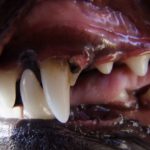
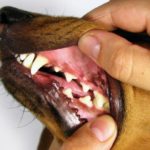
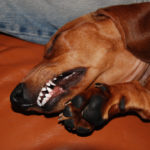


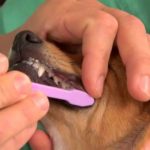
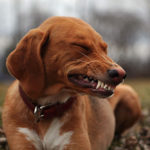
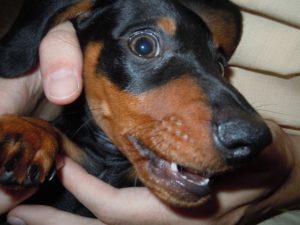



My 13 yr old daschund had a complete dental cleaning in March 2021. on June 22, 2021 I took him back to the same vet because he was drooling a lot. The same vet said to “just watch him because there was a molar that might need extraction. Well he has been really drooling on one side so I took him back to the same vet office today. Previous vet was out so we saw a different vet. $336 later she said his plaque was bad and he has lots of ulcers on his anterior teeth and tongue “they call cups” and it is a “daschund thing”.. My question is how did the plaque come back so quickly and where did the ulcers come from???
Hi, Joe, sorry, I can’t recommend something without a dog checkup.
It’s a really strange situation and I think you should get an opinion from another vet. I hope it will help you.
If you wish you can ask your questions to our partner https://1001doggy.com/consultation-veterinary/ but it’s online.